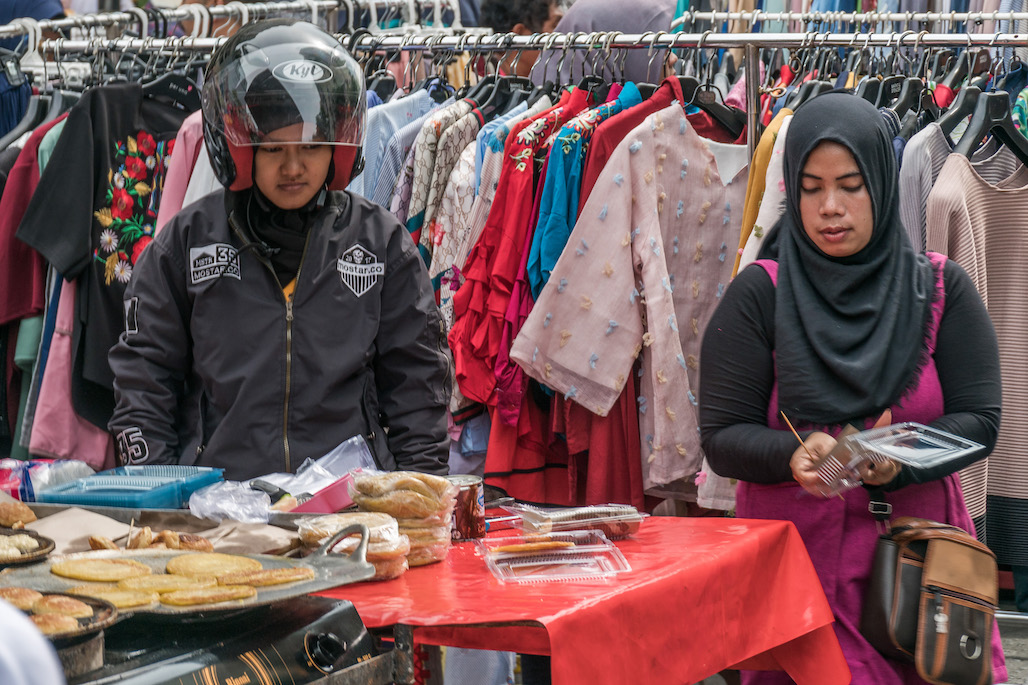Indonesia wants more micro, small-, and medium-sized enterprises (MSMEs) and local communities across West Kalimantan to have access to banking services as part of a nationwide drive to improve financial inclusion.
The Coordinating Ministry for Economic Affairs held workshops on financial inclusion in Pontianak and Singkawang City in West Kalimantan on 21 and 23 July targeting MSMEs as well as local communities.
The move is part of a government initiative under the National Financial Inclusion Council to aggressively push for financial literacy initiatives targeting priority groups. The council is an ad-hoc body established in 2016 and headed by President Joko Widodo.
Economic empowerment
"This activity is an effort to increase financial inclusion with a focus on targeting MSMEs and developing community-based economic empowerment," said Coordinating Minister for Economic Affairs Airlangga Hartarto in a press release.
"I hope that this coordination and synergy will continue to be maintained, strengthened, expanded in supporting inclusive economic and financial empowerment so that it can help MSME actors scale up,” said Airlangga. He also hoped the workshops could improve financial inclusion and literacy as well as “provide sustainable benefits and impacts in improving the welfare of the people of West Kalimantan.”
Encouraging financial inclusion can increase economic effectiveness, support the stability of the country's financial system, reduce the activities of non-bank financial institutions, and support financial market deepening, the ministry said in the release.
Financial literacy as an essential skill
According to the 2019 National Survey on Financial Literacy and Inclusion, Indonesia’s financial literacy index stood at 38.03% and its financial inclusion index at 76.19%. Although still relatively low, these figures represented an increase from the 2016 results of 29.7% and 67.8% respectively. “This shows that Indonesian people, in general, do not properly understand the characteristics of the various financial products and services offered by formal financial services institutions. In fact, financial literacy is an important skill in the context of societal empowerment, individual welfare, consumer protection, and enhanced financial inclusion,” said the Financial Services Authority, the government body tasked to regulate, supervise, and protect the industry.
The National Strategy on Indonesian Financial Literacy (SNLKI) 2021–2025, which details strategies to improve the country’s financial literacy, said the COVID-19 pandemic has tested the financial resilience of various sectors and highlighted that financial literacy is an essential skill for every individual as well as for MSMEs.
Citing a 2021 report that looked at the impact of the pandemic on households, the road map noted that 74.3% of households saw a drop in income due to the crisis. The report also showed that 78.3% of urban households saw a decline in income against 69.5% for rural households.
About 77% of MSME respondents reported a decrease in income during the pandemic. Almost 35% of the respondents saw their income drop by 40%–60%.
The road map envisions Indonesia to have high financial literacy so that appropriate financial products and services can be utilized to achieve sustainable financial well-being.
The program initiatives included in the road map focus on digitalizing financial education, intensifying Islamic financial literacy and accelerating Islamic financial products, developing strategies for implementing financial education and literacy activities in accordance with priority targets, introducing generic financial products, and forging strategic alliances with other ministries and institutions.
The Coordinating Ministry for Economic Affairs held the workshops in West Kalimantan in collaboration with the Archdiocese of Pontianak and other stakeholders. Father Paulinus Surip, chair of the Pontianak Archdiocese's Socio-Economic Development Commission, welcomed the holding of the workshops and the government's efforts to encourage financial inclusion.
The workshop in Pontianak City was attended by 200 members of the Pancur Kasih Credit Union and 30 SMEs. Meanwhile, the workshop in Singkawang City was attended by 150 participants.
